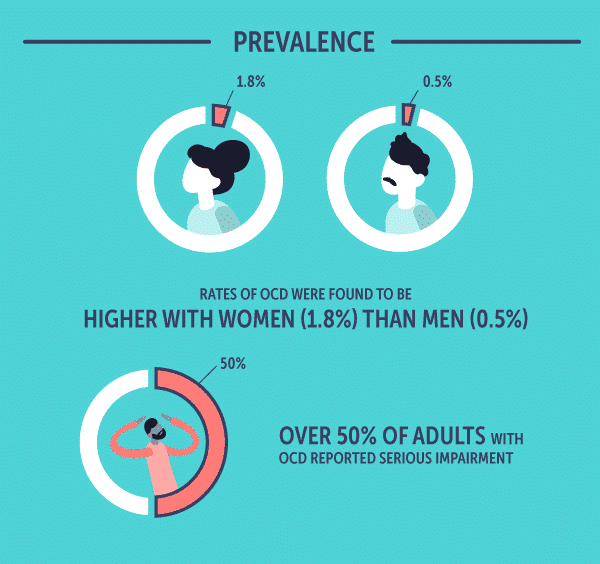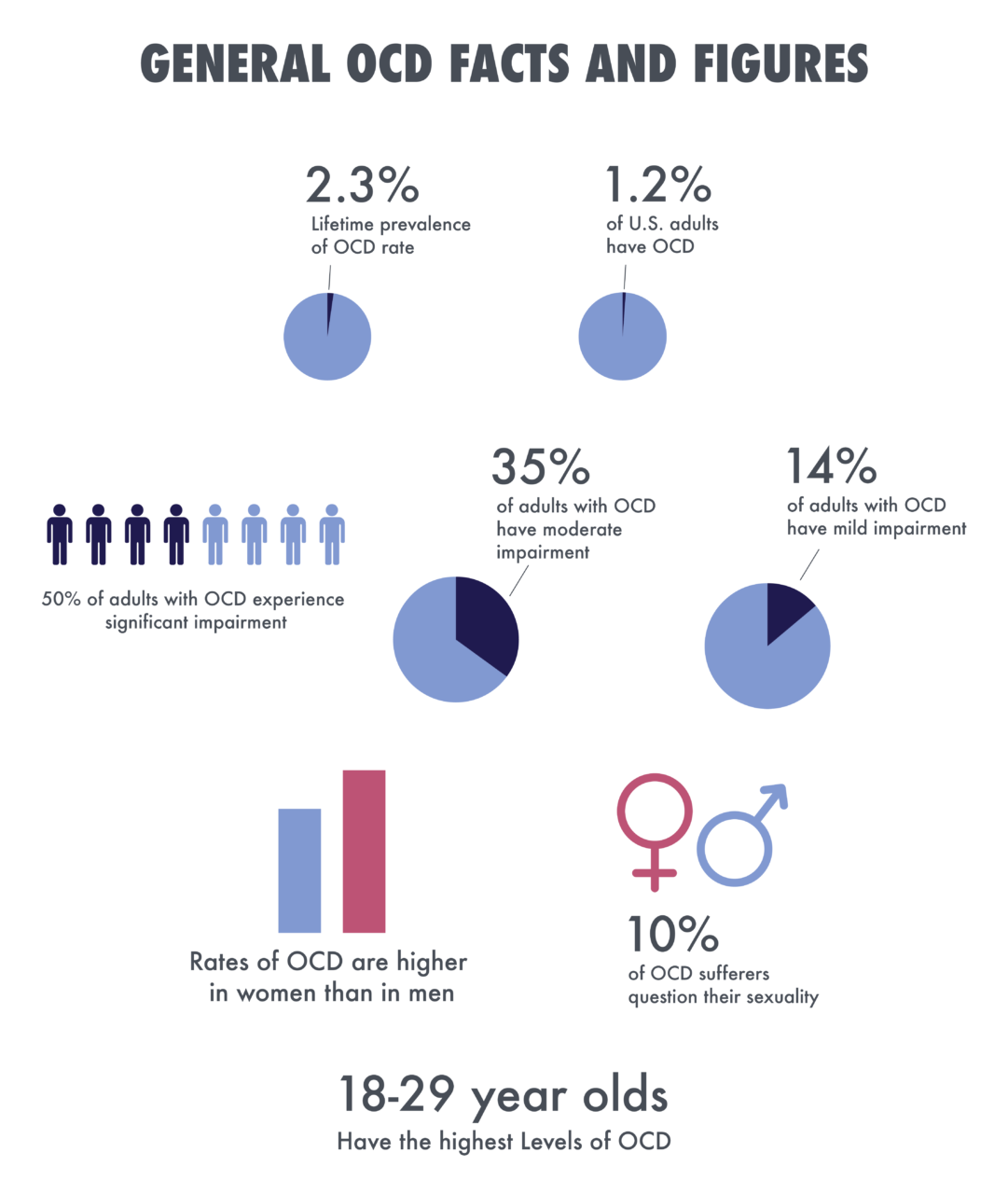I have OCD and was inspired by antikrists bpd awareness page to make my own about ocd.... hope u enjoy and I hope this is helpful to you if you suffer from OCD :)
WHAT IS OCD
Obsessive-compulsive disorder (OCD) features a pattern of unwanted thoughts and fears (obsessions) that lead you to do repetitive behaviors (compulsions). These obsessions and compulsions interfere with daily activities and cause significant distress. - Mayoclinic
Symptoms
Obsession symptoms
OCD obsessions are repeated, persistent and unwanted thoughts, urges or images that are intrusive and cause distress or anxiety. You might try to ignore them or get rid of them by performing a compulsive behavior or ritual. These obsessions typically intrude when you're trying to think of or do other things.
Obsessions often have themes to them, such as:
- Fear of contamination or dirt
- Doubting and having difficulty tolerating uncertainty
- Needing things orderly and symmetrical
- Aggressive or horrific thoughts about losing control and harming yourself or others
- Unwanted thoughts, including aggression, or sexual or religious subjects
Examples of obsession signs and symptoms include:
- Fear of being contaminated by touching objects others have touched
- Doubts that you've locked the door or turned off the stove
- Intense stress when objects aren't orderly or facing a certain way
- Images of driving your car into a crowd of people
- Thoughts about shouting obscenities or acting inappropriately in public
- Unpleasant sexual images
- Avoidance of situations that can trigger obsessions, such as shaking hands
Compulsion symptoms
OCD compulsions are repetitive behaviors that you feel driven to perform. These repetitive behaviors or mental acts are meant to reduce anxiety related to your obsessions or prevent something bad from happening. However, engaging in the compulsions brings no pleasure and may offer only a temporary relief from anxiety.
You may make up rules or rituals to follow that help control your anxiety when you're having obsessive thoughts. These compulsions are excessive and often are not realistically related to the problem they're intended to fix.
As with obsessions, compulsions typically have themes, such as:
- Washing and cleaning
- Checking
- Counting
- Orderliness
- Following a strict routine
- Demanding reassurance
Examples of compulsion signs and symptoms include:
- Hand-washing until your skin becomes raw
- Checking doors repeatedly to make sure they're locked
- Checking the stove repeatedly to make sure it's off
- Counting in certain patterns
- Silently repeating a prayer, word or phrase
- Arranging your canned goods to face the same way
Causes
The cause of obsessive-compulsive disorder isn't fully understood. Main theories include:
- Biology. OCD may be a result of changes in your body's own natural chemistry or brain functions.
- Genetics. OCD may have a genetic component, but specific genes have yet to be identified.
- Learning. Obsessive fears and compulsive behaviors can be learned from watching family members or gradually learned over time.
OCD is NOT:
1. This or this (or this, or this… and on and on).
2. A choice.
OCD stands for obsessive compulsive disorder. As our executive director likes to say, emphasis on the capital D for Disorder. Obsessive and compulsive traits on their own are not a mental illness — we all have things that perhaps we obsess over, (constantly replaying a recent job interview or date in one’s head, examining every last detail for clues to what the person thought, re-writing the same paragraph over and over to make sure the essay or report is JUST right). But for a person with OCD they can’t just “snap out of it.” Research has shown that the brain of a person with OCD actually functions differently in this situation, essentially getting “stuck” on a thought. These thoughts are linked with intense anxiety driving the individual with OCD to engage in compulsive behavior — their only escape. A person with OCD doesn’t obsessively clean their kitchen just because they like it to be clean. A person with OCD is overwhelmed with anxiety and fear about what will happen if they don’t clean their kitchen properly. Imagine being so consumed about something (such as the previously mentioned job interview, first date, essay, or cleaning the kitchen) that you literally could think of nothing else until you felt sure of the outcome you needed…. so caught up in the thoughts and worries that you could not go to work, or go meet friends, or perhaps even leave the house, because your brain was essentially on overdrive, and completely fixated on that one thing. I am “obsessive.” However, I recognize this as part of my personality and when things don’t go my way, even if I find it upsetting, I do not feel a crushing, debilitating wave of anxiety as a result.
3. A quirk.
I had a roommate in college who color-coded all of her textbooks on our bookshelves. Instead of being organized by class or subject or author, they were literally organized by the colors of the rainbow. Perhaps not a practical index system, but it seemed to make her happy. This is not OCD. It’s funny, quirky, perhaps impractical, but she didn’t organize the books this way because she felt compelled to do so out of a need to alleviate deep-seated anxiety. She just liked the colors.
Likewise, I have a thing about kitchen sponges. My house has one sponge for washing dishes, and one sponge for cleaning the counters, and it annoys the hell out of me if people use the wrong sponge for the wrong thing (also, it’s gross). I have a thing about germs, but this is not OCD. If someone uses the wrong sponge, I throw it away and get a new sponge (and perhaps re-wash the plate that just touched the gross counter sponge) — problem solved. For someone with OCD, there is no obvious “problem solved” moment. Once triggered, their OCD would necessitate doing an elaborate ritual to undo the mistake that was made. These “rituals” aren’t indulgences. A person with OCD doesn’t clean the same corner of the kitchen counter 100 times for fun — they do it because they are terrified about what will happen if they don’t. Perhaps they think they will catch a communicable disease, or worse, give a disease to someone in their family, because they cooked dinner in a kitchen that carried these terrible germs — even when they “know” it isn’t true! OCD isn’t about logic — it’s about anxiety.
Have you ever let your mind wander to the worst possible outcome in a given situation? For example, I’ve been stuck on a bus in traffic and imagined being stuck there forever — playing out Lord of the Flies scenarios in my mind with fellow passengers. This “doomsday” thinking is the bread and butter of someone with OCD. The brain can’t help but go to this deep dark place, no matter the situation. THAT IS NOT QUIRKY. It’s torturous.
4. A synonym for anal-retentive, neatnik, clean freak, etc., etc.
This is how the term OCD is often misused in pop culture. It has somehow become a synonym for uptight. OCD is not alone is this — think for a second if you’ve ever described someone as bipolar or schizophrenic when you meant “moody.” Can you imagine if we started using the term cancer this way? Mental illness can be just as devastating to a person and their family as cancer — it interrupts lives, derails plans, and in extreme cases can lead to a person taking their own life.
5. A joke.
Despite the severity of OCD and other mental disorders, many people do not get help. Why? Because of stigma. People with OCD and other disorders are often afraid to speak up, afraid to ask for help, and ashamed that they are somehow defective. In fact, some studies have shown that only 1 in 3 individuals with OCD will tell their medical provider about their OCD symptoms. Why is it okay in our society to publicly and proudly fight cancer, but not mental illness? Why is a disease of the brain any less real or important than a disease of the body.
Unfortunately, joking about mental illness is part of the problem. It perpetuates the idea that OCD is something that someone should be able to just “get over” already. It infers that a person who can’t get over it is somehow weak or defective. It makes people hide their illness from friends and family, despite the fact that a strong support network is often the thing that makes treatment work.
Because OCD is treatable. Many people respond well to therapy, some to medication, and some to a mix of both. It is possible to recover from OCD and live a full and productive life. Sadly, on average it takes people between 14 to 17 years between the onset of symptoms and gaining access to effective treatment. Why are we letting all of those years be wasted?
Until we can stop the cycle of stigma, ignorance, and insensitivity, mental illness will continue to be the cancer that eats away at lives. - iocdf
Quotes:


Links:
mayoclinic
NIMH
iocdf
WIKI
WebMD
Statistics:



- Howie Mandel
- Camila Cabello
- Daniel Radcliffe
- Justin Timberlake
- Leonardo DiCaprio
- Katy Perry
- Fiona Apple

